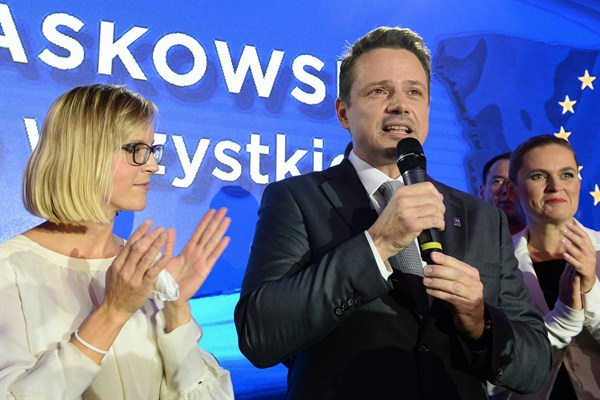Almost exactly one year ago, Poland’s celebration of its national Independence Day turned into a festival of extremism, filling the streets of Warsaw with throngs of flare-burning demonstrators chanting racist, anti-Semitic, anti-Muslim and homophobic slogans. At the time, I wrote that Poland risked becoming the European capital of xenophobia, unless its government and its people made a deliberate decision to counteract the troubling tolerance for right-wing radicals.
Just weeks before this year’s Nov. 11 holiday, Poles voted in regional elections that were the first electoral test for the ruling Law and Justice party, or PiS, in three years. The results showed that, at the very least, the battle against the nationalist, populist PiS and broader xenophobic trends in Poland has been joined. The opposition scored strong results, giving itself a new burst of optimism before a pivotal series of looming elections. The results in Poland also offer a welcome dose of encouragement for struggling liberal opposition parties in other parts of Europe, particularly in Eastern Europe, where nationalist groups have seemed unstoppable.
The PiS, which controls the government of Eastern Europe’s largest, most prosperous country, has become a forceful promoter of illiberal policies both at home and in the European Union. In Poland, it has been busy dismantling the impartiality of the judiciary, and with it, the rule of law. Two weeks ago, Poland vetoed a vote on the European human rights charter, objecting to its inclusion of rights for gay people since Christians and Jews were not also mentioned. It was the first time an EU member state had ever issued such a veto.

